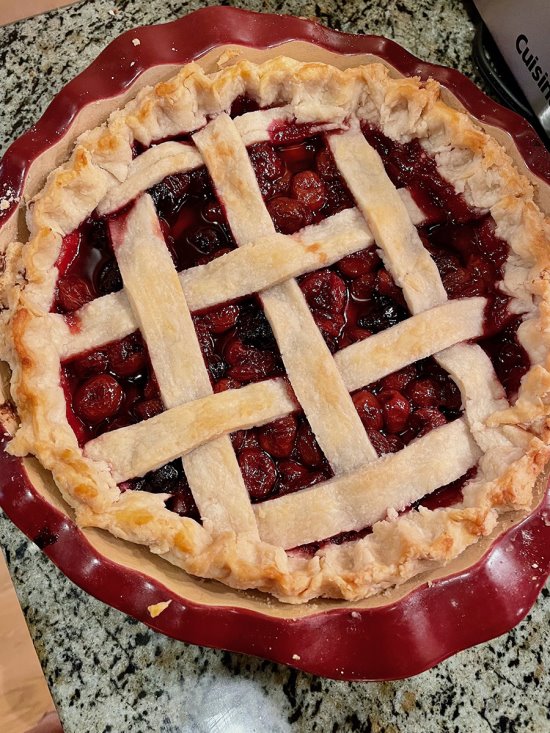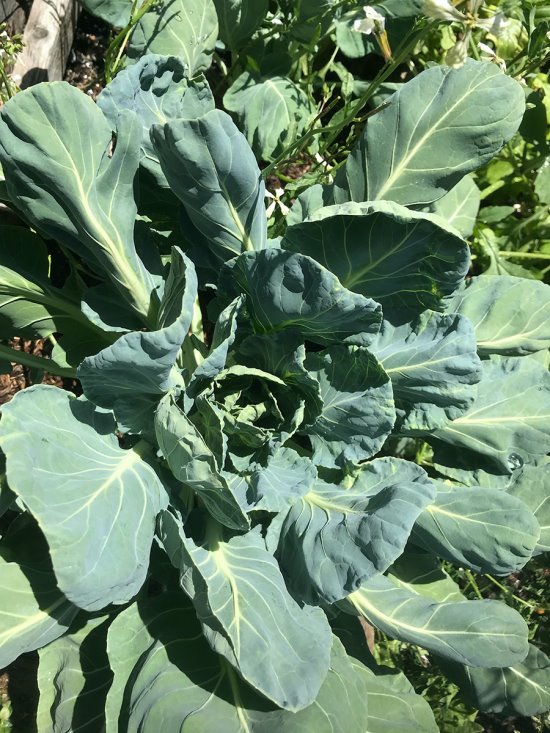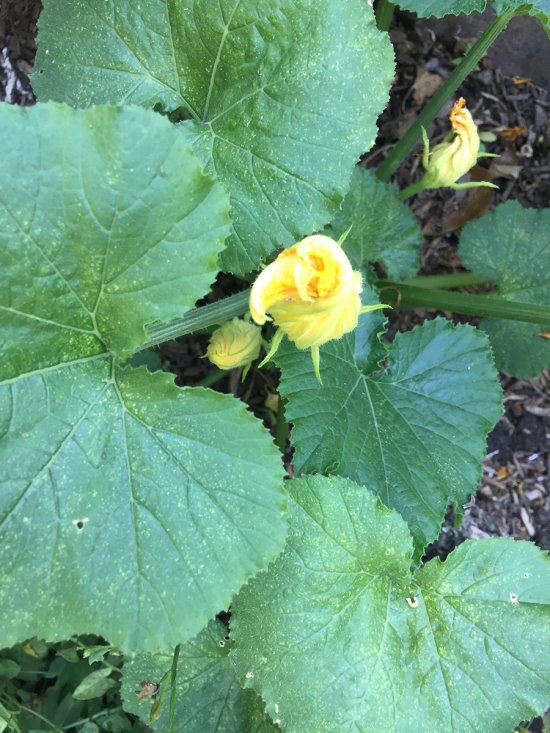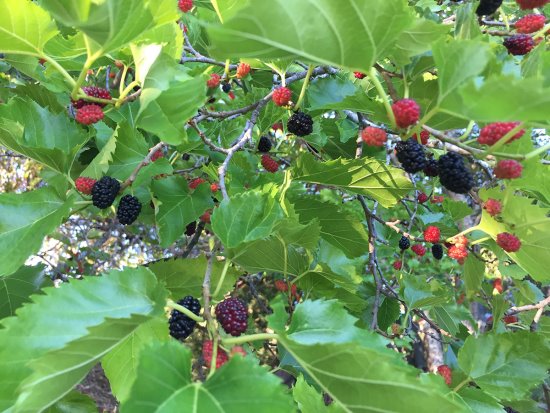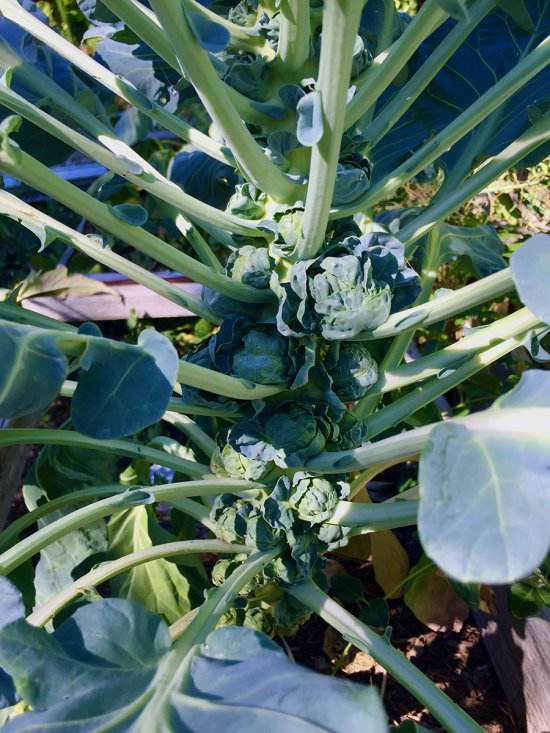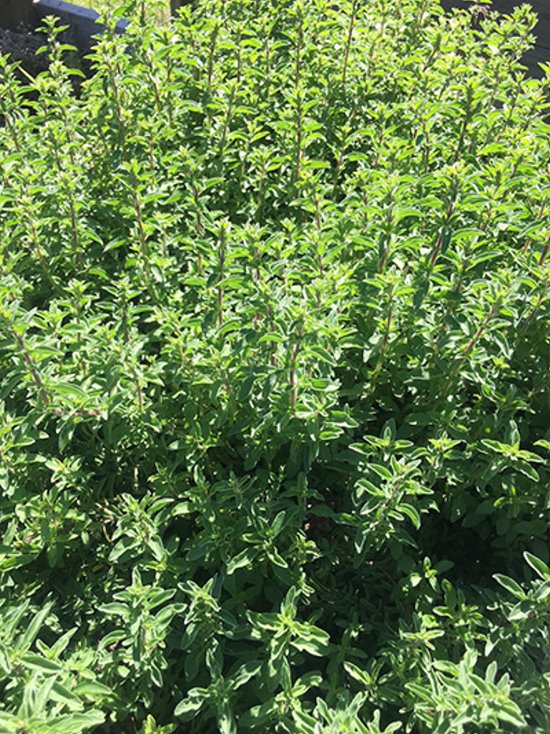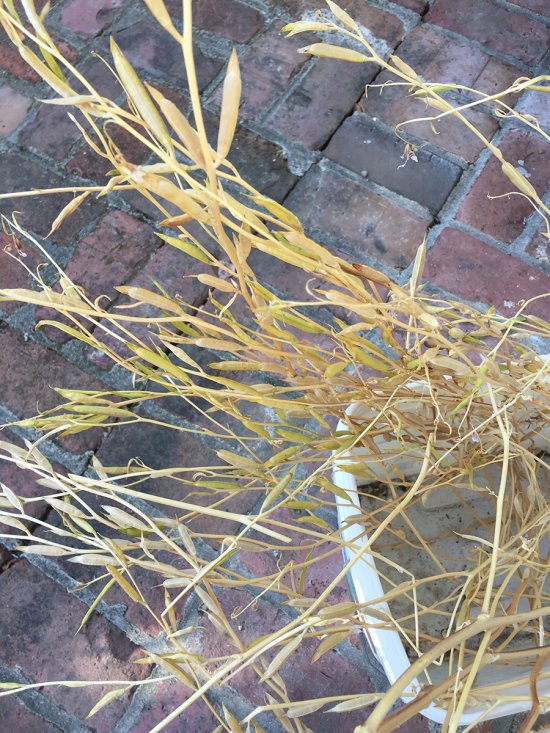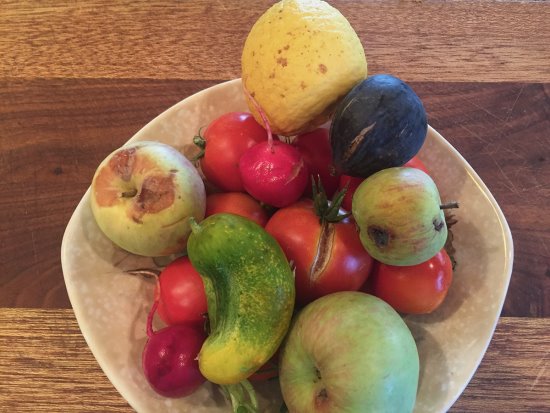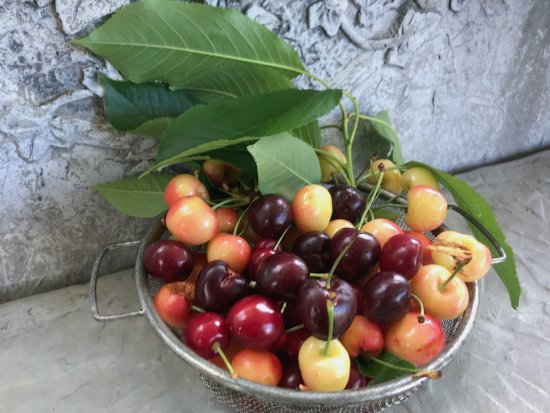 |
|
|
A basket of Bing and Queen Anne cherries. Photos Cynthia Brian
|
|
|
|
|
|
By Cynthia Brian

 "I value my garden more for being full of blackbirds than of cherries, and very frankly give them fruit for their songs." ~ Joseph Addison, essayist and poet (1672-1719)
"I value my garden more for being full of blackbirds than of cherries, and very frankly give them fruit for their songs." ~ Joseph Addison, essayist and poet (1672-1719)
 After months of intently watching my two cherry trees blossom and form fruit, I was aghast as flocks of birds began to daily swarm the branches and fly away with unripe cherries in their beaks. Joseph Addison's quote eased my anxiety a bit as the happy trills of full bird bellies filled the air with soulful melodies. From my bench perch, I witnessed Stellar jays, blackbirds, sparrows, finches, warblers, orioles, robins, doves, and other unknown feathered friends dining on my crop. Although I kept instructing my flying diners to eat at the buffet at the top of the trees, since I don't speak avian, they ate wherever they landed. My reward was the entertainment of witnessing so many species mingling and caroling.
After months of intently watching my two cherry trees blossom and form fruit, I was aghast as flocks of birds began to daily swarm the branches and fly away with unripe cherries in their beaks. Joseph Addison's quote eased my anxiety a bit as the happy trills of full bird bellies filled the air with soulful melodies. From my bench perch, I witnessed Stellar jays, blackbirds, sparrows, finches, warblers, orioles, robins, doves, and other unknown feathered friends dining on my crop. Although I kept instructing my flying diners to eat at the buffet at the top of the trees, since I don't speak avian, they ate wherever they landed. My reward was the entertainment of witnessing so many species mingling and caroling.
 In general, cherries don't ripen once they are picked. It took patience for me to wait until the Bings turned purple and the Queen Anne's had a blush rose on their yellow skins before I grabbed a basket to harvest what was still available. Netting a tree is the way to protect your investment when you have a small tree, but when your trees are 20 feet or larger, netting is more rigorous, although not impossible. My daughter-in-law was able to gather enough cherries from her family plot to make my favorite cherry pies. Her family uses extra-long bamboo poles wrapped with netting to cover their tall trees to protect them from the marauders. It takes several family members to accomplish the task.
In general, cherries don't ripen once they are picked. It took patience for me to wait until the Bings turned purple and the Queen Anne's had a blush rose on their yellow skins before I grabbed a basket to harvest what was still available. Netting a tree is the way to protect your investment when you have a small tree, but when your trees are 20 feet or larger, netting is more rigorous, although not impossible. My daughter-in-law was able to gather enough cherries from her family plot to make my favorite cherry pies. Her family uses extra-long bamboo poles wrapped with netting to cover their tall trees to protect them from the marauders. It takes several family members to accomplish the task.
 The mulberries and loquats are also ripe with birds, squirrels, deer, and me all fighting for the feast. The plums will be next on the agenda within a week. The marvelous part of the sparring and squabbling is nothing goes to waste. Even the fruit that falls is gulped up by rabbits, quail or other critters. (While weeding around the tree, I disturbed a momma quail sitting on her eggs. When foraging, quail eggs are also a delicacy. I didn't touch them!)
The mulberries and loquats are also ripe with birds, squirrels, deer, and me all fighting for the feast. The plums will be next on the agenda within a week. The marvelous part of the sparring and squabbling is nothing goes to waste. Even the fruit that falls is gulped up by rabbits, quail or other critters. (While weeding around the tree, I disturbed a momma quail sitting on her eggs. When foraging, quail eggs are also a delicacy. I didn't touch them!)
 These exhibitions made me think about how much humans waste. One-third of all the food produced in the world never gets eaten; 63 million tons of food was sent to landfills by Americans in 2018, producing methane, a greenhouse gas that contributes to climate change. It amounted to more than $408 billion of uneaten goods. According to the Natural Resources Defense Council, the cost of food waste to the average person is at least $1,600 annually. By 2050 it is estimated that there will be over 9 billion people on our planet and that food insecurity will be a major threat to living healthy lives.
These exhibitions made me think about how much humans waste. One-third of all the food produced in the world never gets eaten; 63 million tons of food was sent to landfills by Americans in 2018, producing methane, a greenhouse gas that contributes to climate change. It amounted to more than $408 billion of uneaten goods. According to the Natural Resources Defense Council, the cost of food waste to the average person is at least $1,600 annually. By 2050 it is estimated that there will be over 9 billion people on our planet and that food insecurity will be a major threat to living healthy lives.
 What can individuals do to help change this habit of unused consumption?
What can individuals do to help change this habit of unused consumption?
 1. Grow your own groceries: Plant fruits, herbs, and vegetables that you want to eat. Plant only enough for your family and friends. If you have extras, try canning, freezing, or donating them to a food pantry. Easy and nutritious summer crops include tomatoes, beans, carrots, squash, eggplant, peppers and cucumbers. Lettuce and greens can be grown all year utilizing succession planting. Harvest your artichokes, cabbages, Brussels Sprouts, Swiss Chard, and kale now. Save the dried seeds from arugula to plant in the fall. Embrace the ugly, deformed, blemished, and bruised fruit and veggies as they still will pack a punch.
1. Grow your own groceries: Plant fruits, herbs, and vegetables that you want to eat. Plant only enough for your family and friends. If you have extras, try canning, freezing, or donating them to a food pantry. Easy and nutritious summer crops include tomatoes, beans, carrots, squash, eggplant, peppers and cucumbers. Lettuce and greens can be grown all year utilizing succession planting. Harvest your artichokes, cabbages, Brussels Sprouts, Swiss Chard, and kale now. Save the dried seeds from arugula to plant in the fall. Embrace the ugly, deformed, blemished, and bruised fruit and veggies as they still will pack a punch.
 2. Use all parts of an edible plant. Stems of parsley, cilantro, broccoli, and more are often discarded. Chop them up and use them in stir-fries, salads, soups, and sauces. They are full of flavor and vitamins. Get creative with your recipes.
2. Use all parts of an edible plant. Stems of parsley, cilantro, broccoli, and more are often discarded. Chop them up and use them in stir-fries, salads, soups, and sauces. They are full of flavor and vitamins. Get creative with your recipes.
 3. Compost, compost, compost. You don't need to have a green thumb to create healthier soil by recycling nutrient-rich eggshells, fruit and vegetable scraps, coffee grinds, tea leaves, brown paper bags, bread, grains, citrus rinds, and noodles. Keep a small, covered bin under your sink. When it is full, transfer the contents to a compost pile or bin outdoors to age. Upgrade your garden with leftovers and watch your vegetables grow strong.
3. Compost, compost, compost. You don't need to have a green thumb to create healthier soil by recycling nutrient-rich eggshells, fruit and vegetable scraps, coffee grinds, tea leaves, brown paper bags, bread, grains, citrus rinds, and noodles. Keep a small, covered bin under your sink. When it is full, transfer the contents to a compost pile or bin outdoors to age. Upgrade your garden with leftovers and watch your vegetables grow strong.
 4. Shop smartly. Before going to the grocery store or Farmers' Market, make a list of what you will consume until your next shopping foray. Don't buy items you won't need because they are on sale, or you are just hungry.
4. Shop smartly. Before going to the grocery store or Farmers' Market, make a list of what you will consume until your next shopping foray. Don't buy items you won't need because they are on sale, or you are just hungry.
 5. Expiration dates are not death dates. Food packages exhibit dates when the product is at its best. The "sell by" or "use by" date is not a "throw this away" date. The over-cautiousness leads to excess waste. The USDA recommends looking for changes in color, flavor, consistency, and smell before tossing. If spoiled, compost it.
5. Expiration dates are not death dates. Food packages exhibit dates when the product is at its best. The "sell by" or "use by" date is not a "throw this away" date. The over-cautiousness leads to excess waste. The USDA recommends looking for changes in color, flavor, consistency, and smell before tossing. If spoiled, compost it.
 We all have the ability and the responsibility to eliminate food waste which will also help towards reducing climate change. It's time we start acting like the birds and animals, eating what's fresh and only what we need. Perhaps when we start doing that, there will be enough for everyone, everywhere.
We all have the ability and the responsibility to eliminate food waste which will also help towards reducing climate change. It's time we start acting like the birds and animals, eating what's fresh and only what we need. Perhaps when we start doing that, there will be enough for everyone, everywhere.
 I'm enjoying my basket of sweet cherries while listening to the chorus of chirping fowls. A slice of my daughter-in-law's cherry pie will be my Independence Day treat. The birds may know best. Time to sing.
I'm enjoying my basket of sweet cherries while listening to the chorus of chirping fowls. A slice of my daughter-in-law's cherry pie will be my Independence Day treat. The birds may know best. Time to sing.
 Happy Gardening. Happy Growing. Have a safe and fun Independence Day!
Happy Gardening. Happy Growing. Have a safe and fun Independence Day!
|
| Cynthia Brian, The Goddess Gardener, is available for hire to help you prepare for your spring garden. Raised in the vineyards of Napa County, Cynthia is a New York Times best-selling author, actor, radio personality, speaker, media and writing coach as well as the Founder and Executive Director of Be the Star You Are!r 501 c3. Tune into Cynthia's StarStyler Radio Broadcast at
www.StarStyleRadio.com. Buy copies of her best-selling books, including, Chicken Soup for the Gardener's Soul, Growing with the Goddess Gardener, and Be the Star You Are! Millennials to Boomers at
www.cynthiabrian.com/online-store. Receive a FREE inspirational music DVD. Hire Cynthia for writing projects, garden consults, and inspirational lectures.
Cynthia@GoddessGardener.com
www.GoddessGardener.com |

